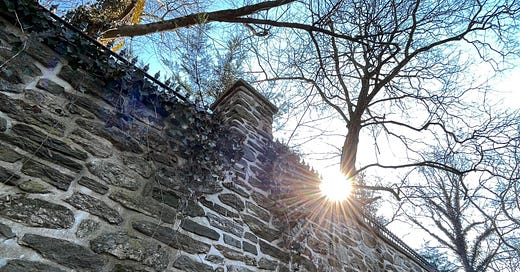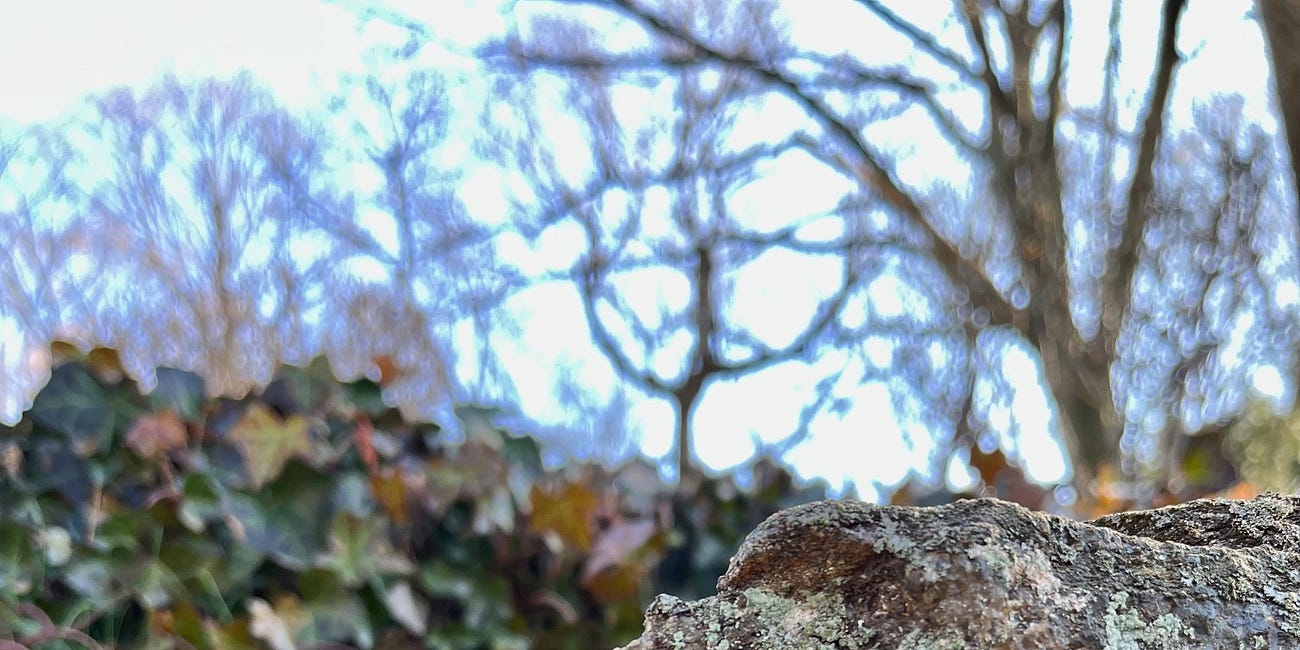You were made for this moment
You think you don't know what to do, or to offer. But think of how far we've all come.
Last week, we set intentions in our inaugural In Tending Community Tuesdays thread. This week, we’re talking about what we love to offer, what we love to receive, and how we can offer mutual aid to one another as a gentle rebuke to capitalism. My co-facilitator Meredith and I are also planning our next In Tending Zoom gathering, which will be held on April 29 at 5pm pst/8pm EST (save the date!).
So, this Thursday post is a short one, as I’m shifting my focus to developing these offerings (and I also don’t want to overwhelm your inbox). But I did want to share some related insights from a post I wrote in the early days of this newsletter:
Millennials were made for this moment
“If you give nature time, and space, it’s amazing what nature will do to bring back what we took away.” — Jane Goodall
This moment in history is not the only time during which people have been called to help one another because their government was not doing such a bang-up job of it. Some things to consider from the piece above:
The Greatest Generation members of our families likely valued acts of service and physical care deeply, given how often words and systems had failed them, from the Great Depression to WWII. My own Greatest Generation grandparents were people of few words, but as I note in this piece, they were the kinds of people who knew a go-to recipe for “funeral potatoes” by heart, and they never missed a memorial or a viewing. They modeled the importance of still breaking bread together, when everything else is breaking apart. We have our wise elders’ examples — of humble, simple acts of community care — to follow as we consider how to show up now.
As technologies like Facebook, Twitter and the iPhone emerged, Millennials like me, as the first digital natives, were pioneers when it came to using technology for deeply human purposes. We created the first meal train lists online and learned to source medical supplies through group texts instead of church phone trees. Whenever we’re feeling like we don’t know what to do, we can look back and remember how far we’ve come in a single generation — how much we are able to do, without realizing how much more that is, sometimes, than what our parents or grandparents could do. We can also look forward, using intention-setting threads like the ones hosted here to ask ourselves: how can I continue to use technology to spread the love, without spreading myself too thinly?
The Gen Z kids I’ve taught are by and large more compassionate and outspoken than the middle schoolers I grew up with, because we are raising and educating them in much more loving spaces. When my parents got divorced in the 90s, I don’t recall a single school adult checking on me. Divorce is now commonly understood to be a form of disenfranchised grief – the kind people don’t have an easy time recognizing or talking about as loss. Things have changed in big ways for students in this position nowadays. Many schools, including the ones at which I have taught, now work hard to create in-school families known as “Advisory groups,” where students not only receive 1:1 support from a caring adult but are guided to provide it to each other, for all kinds of struggles that might have previously fallen under the radar. Absent parents, suicidal siblings, food insecurity – it all goes on the table. We are so much more comfortable talking about tough topics with kids than we were even twenty years ago. That’s a big deal. So when we’re giving ourselves a hard time for not knowing the perfect words to offer in every situation — we can also give ourselves more credit for what we’re already talking about, the words we are already comfortable using, in comparison with earlier generations.
Due to the pandemic, more of us have been through the crucibles of grief and death than before. I believe that these experiences have taught us that seasons of drought and plenty come for us all, and it makes sense to share when we can, as trees do. I really do hope that the care I’ve received in my own seasons of loss is a sign that as a generation, we’re acting more like an old-growth forest again, a real village, rich in interspecies connections and sustained by reciprocity.
I hope you’ll join us for the rich discussion we’re having about that this week at In Tending. And if not now, then we hope to see you soon, when the season is right.





